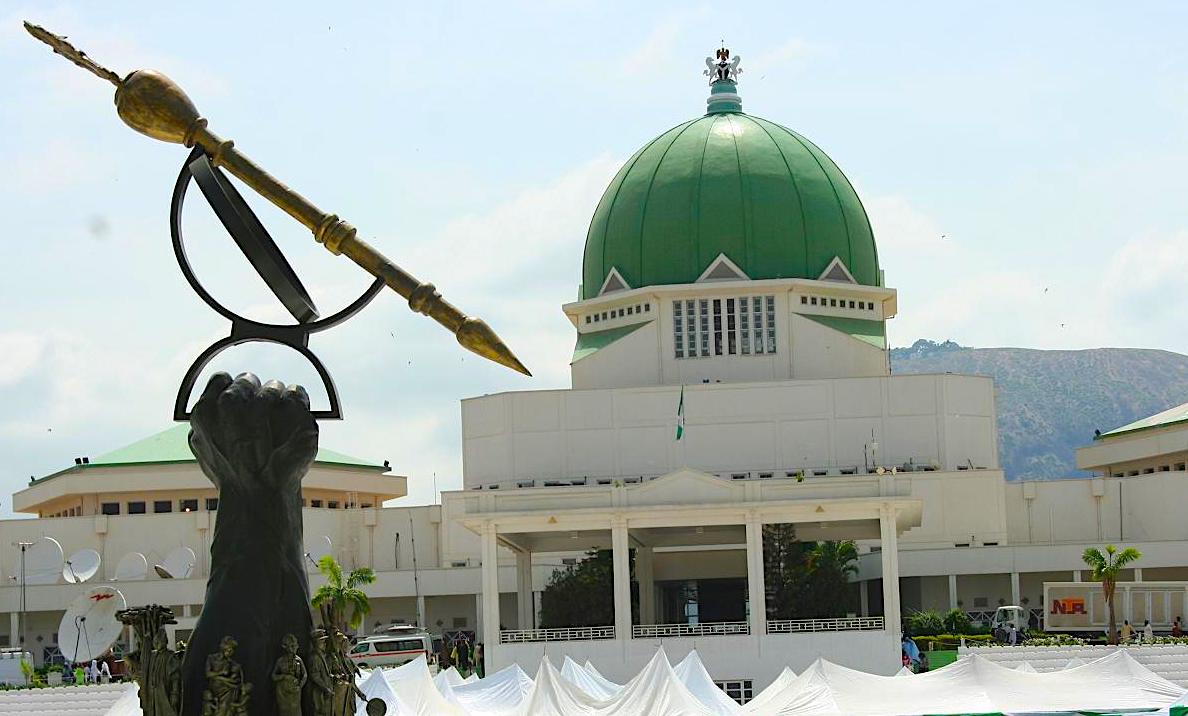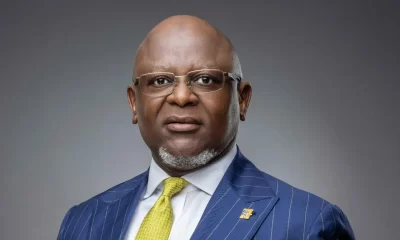Comments and Issues
Why the 10th national assembly cannot disappoint
Published
10 months agoon

With politics since over, time now is for governance. Not just governance, but good governance. And of course, a government delivers good governance only if it is deliberately committed to “accountability, leadership, integrity, stewardship and transparency”, or simply, if it is evidently citizens-oriented.
Then again, of the three arms of government, the legislature is the one central to good governance. Its core functions begin and end with good governance. And even by configuration, it is the closest to the people, connecting them to the government. So, the legislature is indeed the people’s shield and advocate.
Hence, as Nigerians are already in a hurry to see the ultimate manifestations of the promises of the 2023 general elections all eyes are now on the legislature.
Most families can no longer feed adequately, basic health care and education, including transportation, are increasingly becoming unaffordable and also, insecurity is growing geometrically. These and many more are gaps yearning for good governance.
But the question is: how prepared and well-equipped is the 10th national assembly relative to this task of dispensing good governance?
By the constitution, the 10th national assembly is ill-equipped. The laws are beset with several limitations that greatly weaken the positions of the parliament, particularly in the exercise of checks and balances on the executive. The weak constitution renders the legislature powerless and protects the presidency all-round. It equally offers the governing political parties undue latitudes to influence the legislature.
So except with a president who is deliberate in cooperating with the legislature, the 10th national assembly is already undermined sequel to the imbalance in strengths among the arms. It is such that even if the legislature insists on its ideal roles and responsibilities, there will only be a state of anarchy as both arms will ‘justifiably’ fight always to preserve their powers and authority. There are no clear-cut mechanisms in the constitution to check executive breaches and abuses.
Thus, the extent to which the legislature is in cooperation or hostility with the executive determines the quality of governance dispensed.
But if the well-being of the people is the ultimate goal of governance, then collaboration is a valid option, provided that the relative independence of the arms is recognized and respected. Besides, the mark of a responsive government is the willingness and ability to make sacrifices and or do whatever is necessary, within the ambit of the laws, to offer a quality life to the people.
And in this regard verifiably, the 10th national assembly has demonstrated immense determination borne out of a deliberate commitment to the public interest.
Going by the legislative activities so far, notably the resolutions, the 10th national assembly is in tune with the mood of the moment. It truly understands that Nigerians today yearn for only actions that bear assurances that the government cares about them. Both chambers are remarkably mobilized and upbeat as regards the people’s expectations.
And then by way of impetus to this public-oriented disposition, there is this rare blend of executive and legislative leadership antecedents that characterizes the dramatis personae in both the presidency and the national assembly including also the ruling APC, which portends a viable opportunity for good governance.
The president and vice as well as the secretary to the government of the federation, who incidentally is the head of the cabinet ministers, are former state governors and senators of the federal republic. More interestingly, the presidential home-keeper, the first lady, and the two gate-keepers, the chief of staff and deputy, are alumni of the national assembly.
Similarly, the national chairman of APC, also a former governor, alongside the deputy, and the secretary, who equally is an ex-deputy governor, had all served as senators.
Then again, the head of the federal legislature, wearing two hats as the president of the senate and the chairman of the national assembly, was at different times before now, governor, senator and minister.
And instructively as well, it is likely that the federal executive council would feature some past legislators.
So predictably, these would culminate in a home-grown hybrid governance model defined by among others, shared vision, consensus-building, sustainable collaboration, mutual respect for boundaries, empathy, and commitment to institutional and legislative strengthening as well as unity of purpose.
Clearly these basic catalyses for good governance are to the advantage of the legislature. At least, the highly-influential presidency and the governing party, apart from being pleased with the choice of the parliamentary presiding officers, would objectively, on all issues of governance, deploy their priviledged knowledge of the constitutional limitations undermining the legislature. And in the end, the masses are the ultimate beneficiaries.
Thus, with the formation of the federal cabinet in a few weeks, the stage would have been fully set for the delivery of this much-anticipated good governance.
Once again, the 10th national assembly is not just fully abreast of the citizens’ expectations but is self-motivated and well-prepared.
While the president of the senate, Godswill Akpabio, declared that “it is time now to go forward with the task set before us as a collective body – the promulgation of laws and enactments for the well-being and security of the country and as a check on the executive arm”, the speaker of the House, Tajudeen Abbas, announced that “we shall work closely and inter-dependently with the Executive and Judiciary to give Nigerians the good governance they deserve……. We will champion legislation that will uplift the lives of our fellow citizens, promote social justice, and drive sustainable development”.
ALSO READ: Why the National Assembly race matters
Buoyed by the truism that security is consequential to the overall well-being of the country, Abbas added that “we will focus on strengthening our security apparatus, collaborating with relevant stakeholders to combat insurgency, terrorism, and all forms of criminalities. We aim to help create a safe and secure environment that fosters economic growth and social stability”.
On the economy, they both have enough up their sleeves.
Mr Speaker elaborated further that “through legislation, the 10th House will promote entrepreneurship and support small and medium-scale enterprises. We shall diversify our economy and provide sustainable employment opportunities for our youth. We are aware of the challenges in our education, healthcare, and infrastructure sectors amongst others”.
Meanwhile, Senator Akpabio had hinted that “we will, as a forward-looking Senate, pass laws that emphasise economic viability, social acceptability and environmental sustainability, to encourage alternate and green technologies without prejudicing our developmental needs”.
Then towards mitigating the lapses in the constitution that largely restrict the legislature, the honourable speaker was unambiguous that “we will work in harmony with the executive arm, while upholding principles of checks and balances. Our collaboration will be anchored on the principles of transparency, accountability, and respect for the rule of law”.
Similarly, the senate president observed that because president Bola Tinubu has within this very short period in office proven his commitment “to a strong economy, national security, inclusion and the rule of law………..We should, therefore, anticipate an executive that is proactive, progressive and practical”.
He was also unequivocal that “our laws must, therefore, align with the vision of Mr President to protect and provide for our people at the innermost core of their essence while our actions must also guarantee the best and most efficient use of our national commonwealth”.
Continuing, Senator Akpabio stressed that conscious and sustained attention must be accorded to “gender matters, with specific affirmative provisions to guarantee women’s inclusivity” as well as “issues relating to persons with special needs and equality”.
He was equally enthusiastic about “engaging, empowering and rewarding our resourceful and innovative youths in terms of protection of intellectual innovations and property, and improved access to finance for technological start-ups” adding that “we must recognise and prepare for a mid-21st century global economy that places a premium on intellectual content and knowledge, and our young men and women must be supported to engage competitively”.
Furthermore, Akpabio listed as a priority area, “expansion of the revenue streams available to the country, especially from our huge but largely unregulated natural and solid mineral resources base, while insisting that “these additional sources of revenue will build the nation’s resilience to shocks and stresses resulting from the fluctuation of oil prices in the international market;
And then, in conclusion, both leaders have words of covenant for the country.
While the president of the senate vowed to Nigerians that “your dreams, your aspirations, and your well-being will be at the heart of everything we will do in this Senate”, Rt. Hon. Abbas pledged that “we hold our respective offices in trust for the Nigerian people. We MUST, therefore, justify the confidence reposed in us by our constituents to represent their interests and work committedly for our dear nation”.
Although it has become a ritual to hear appealing speeches at every turn of the inauguration of presiding officers, what is significant in this case is the exceptional courage to frontally speak to the issues and show pragmatic resolve to tackle them. Nothing can be more reassuring. A problem identified they say, is a problem half-solved. Above all, and given the deliberate adoption of bipartisanship as well as the promotion of national interest consciousness in legislative business, as seen majorly on the motions so far, the 10th national assembly is not ready to incur the citizens’ ill will. The leadership is mindful that their public profile and reputation depend on the offices they occupy today. The legislators are aware that they would run into landmines if they fail their constituents especially now that every quality of leadership is a direct challenge to the democratic will of the people.
Therefore, well-meaning Nigerians should rise beyond ethnicity, partisanship and religion to embrace this assembly with all the support and cooperation necessary for excellence. If you expect the right things always from the government, then do the right things always for the government. Even in the face of the porous constitution, the legislature can still deliver, if only the people are in firm partnership with it basically through timely and useful information as well as relevant questions. For it is only by constantly reminding these elected representatives of their words that our mandate can fetch us the desired dividends.
So to you public-spirited Nigerians desirous of a new order: now the ball is in your court! And then to the 10th national assembly: the days, weeks and months ahead shall offer you the ultimate test. But in the meantime, the clock is already ticking and you cannot afford to disappoint.
Egbo is a parliamentary affairs analyst
Trending

 Health & Fitness4 days ago
Health & Fitness4 days agoMalaria Vaccines in Africa: Pastor Chris Oyakhilome and the BBC Attack

 Featured1 week ago
Featured1 week agoPolice reportedly detain Yahaya Bello’s ADC, other security details

 Aviation6 days ago
Aviation6 days agoWhy some airlines are avoiding Nigeria’s airspace–NAMA

 Aviation5 days ago
Aviation5 days agoJust in: Dana airline crash lands in Lagos

 Aviation5 days ago
Aviation5 days agoNSIB begins investigation into Dana Air after crash-landing incident

 Business1 week ago
Business1 week agoDebt servicing gulps 56% of Nigeria’s tax revenue, says IMF

 News1 week ago
News1 week agoOndo APC guber hopefuls reject primary poll

 Business1 week ago
Business1 week agoAdesola Adeduntan steps down as FirstBank CEO

